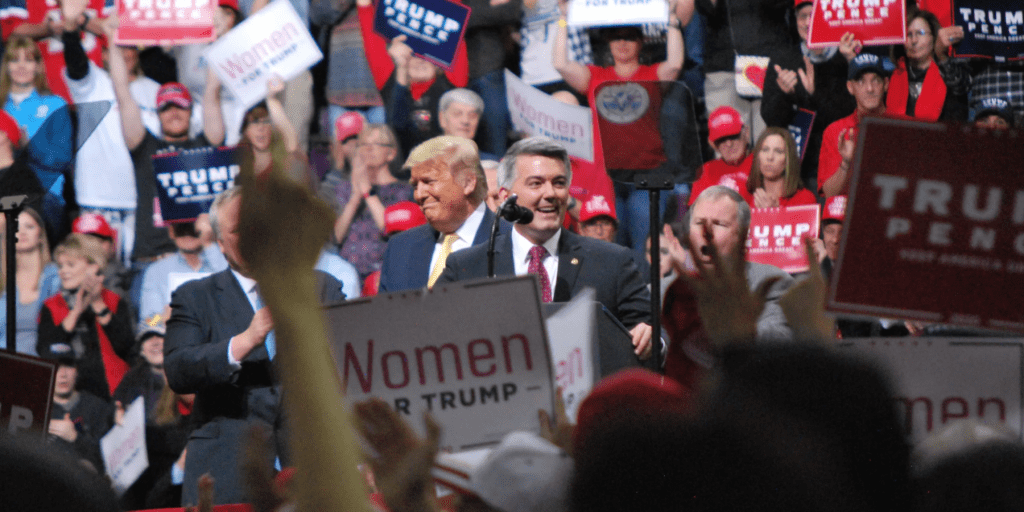Colorado state Sen. Bob Rankin told The Denver Post’s Alex Burness last week that if he loses his state Senate seat in November “I’m going to blame Donald Trump.”
Asked Wednesday about his statement, Rankin told the Colorado Times Recorder that his comment to The Post was “perhaps an inappropriate attempt at humor.”
“The discussion was about the effect of the national issues on the state races, and I made an off-hand comment that, ‘Well, if I lose I guess I can blame Donald Trump, because of the overwhelming influence of national races.’ But I don’t believe that,” said Rankin.
Rankin was an early supporter of Trump, backing the candidate when other Colorado Republicans refused to do so, but he says he’s running on his “own merits” and doesn’t want to link himself to the president.
“I am running a race in which I intend to stand on my own merits, and I think Colorado’s issues are somewhat independent of the national issues and that we should run on our own merits and not tie ourselves to any specific national candidates,” said Rankin.
Rankin, who faces Democrat Karl Hanlon, declined the opportunity to speculate on how much Trump might influence the outcome of his race.
Rankin is not alone among Colorado Republicans, who are running in competitive races, in trying to claim independence from Trump while supporting the president.
Bob Roth, a former Aurora city councilman who’s challenging Democrat Jeff Bridges for a swing seat in Arapahoe County, openly backs Trump, saying the president is “doing the things he said he’d do.”
Roth doesn’t think Trump will have an impact on his race.

Like Roth, U.S. Sen. Cory Gardner (R-CO), who’s battling Democrat John Hickenlooper in a race that was expected to be close, hasn’t been shy about his support for Trump. Garder has tried to make the argument that his close relationship with the president is helpful to Colorado.
Some Republicans running in swing districts apparently want to stay so distant from Trump that they won’t tell voters whether they support the president at all.
One such candidate is Republican Richard Murray, who faces Democrat Ilana Spiegel for a swing seat on the University of Colorado Board of Regents.
Murray shares Rankin’s view that his local race should be separated from the national issues and candidates.
“I don’t want to comment on the president. I see it as separate and distinct from the CU Board of Regents,” Murray told Colorado Politics Reporter Earnest Luning. “The Board of Regents is charged with being the stewards of the flagship university in the state. It’ll be a race with its own issues and messaging, even though there’ll be a lot of noise in the news from other races on the ballot.”
Other Colorado Republicans who won’t say where they stand on Trump, apparently believing it will hurt them in their competitive races, include: Suzanne Staiert, who’s competing with Democrat Chris Kolker for a hotly contested Senate seat in the Arapahoe County area; Caroline Cornell, who’s challenging Democratic state Rep. Tom Sullivan for a Centennial House seat; and State Sen. Kevin Priola, who’s being challenged by Democrat Paula Dickerson for his Adams County state Senate seat.
Conversely, are there Republican state officeholders in Colorado–or GOP candidates in key state races–who have said they do not support Trump? Multiple searches could find no one, but some former Colorado lawmakers and party officials have broken with the president.




